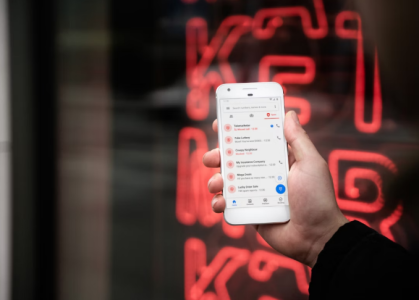Scammers exploit public confusion around tariffs, immigration, and drug policy
- Replies 2
Scammers are taking full advantage of the uncertainty stirred up by recent headlines, using that confusion as fertile ground for increasingly sophisticated schemes that prey on public anxiety.
Individuals posing as government officials are weaving together alarming narratives that tap into fears around border enforcement, global trade disruptions, and high-profile criminal investigations.
While the general structure of these cons isn’t unfamiliar, the details have become sharper, more customized, and far harder to dismiss—often pulling in just enough truth to seem legitimate.
And behind the scenes, the financial damage being inflicted by these carefully constructed deceptions is not only substantial, but accelerating at a pace that has experts concerned.
From January to April, over 75,000 reports of government imposter scams were submitted to the Federal Trade Commission, with many involving fake Customs and Border Protection agents.
The scam typically begins with a call or text claiming a suspicious package—often containing drugs—has been intercepted at the border.
Targets are pressured into handing over banking details or making payments through cryptocurrency or gift cards.
One of the most common lies includes a package from Mexico that supposedly has the victim’s name on it.

Consumers reported $1.62 million lost to these customs scams in just the first four months of 2025, with a median loss of $1,000 per case.
Toll road scam losses were smaller but more widespread, often starting with a $7 charge before escalating to larger frauds.
Meanwhile, impersonators of the FTC racked up a shocking median loss of $12,000 per incident, by convincing victims to “protect” their money from hackers.
These scams typically pressure people to transfer money to fake crypto accounts or hand over gold and cash.
Other scammers are impersonating US Citizenship and Immigration Services or fake immigration attorneys to prey on immigrants and vulnerable families.
Victims have paid tens of thousands to supposed “experts” offering expedited green card help or legal support.
One woman received multiple surprise charges after being told her online order was rejected at customs.
Another was conned into paying $5,000 under the threat of deportation — and was told her family would be targeted if she didn’t comply.
Social media has also become a hotbed for fake legal services, with scammers staging Zoom calls using phony USCIS officers in uniform.
These impersonators claim to offer appointments in exchange for Zelle or Western Union transfers. But USCIS doesn’t send appointment details via WhatsApp or Messenger, and never asks for cryptocurrency.
The FTC emphasizes it will never threaten consumers, demand crypto or gold, or ask you to move money to “protect” it.
The Better Business Bureau has also warned of fraud involving fake delivery delays linked to tariffs, with scammers demanding more money to release packages.
Others provide tracking numbers that show a delivery—just not to your actual address. These stunts are often used to cover for non-existent or counterfeit products ordered online. The pattern is familiar: they trigger panic, then demand payment.
Read next:

Are scammers catching you or someone you know off guard with fake government threats? Share your experience or questions in the comments—someone else may learn from your story. Have you ever received a call about a mysterious package or immigration problem that didn’t quite add up? Let’s talk about what made you suspicious—and how you handled it.
Individuals posing as government officials are weaving together alarming narratives that tap into fears around border enforcement, global trade disruptions, and high-profile criminal investigations.
While the general structure of these cons isn’t unfamiliar, the details have become sharper, more customized, and far harder to dismiss—often pulling in just enough truth to seem legitimate.
And behind the scenes, the financial damage being inflicted by these carefully constructed deceptions is not only substantial, but accelerating at a pace that has experts concerned.
From January to April, over 75,000 reports of government imposter scams were submitted to the Federal Trade Commission, with many involving fake Customs and Border Protection agents.
The scam typically begins with a call or text claiming a suspicious package—often containing drugs—has been intercepted at the border.
Targets are pressured into handing over banking details or making payments through cryptocurrency or gift cards.
One of the most common lies includes a package from Mexico that supposedly has the victim’s name on it.

Scammers exploit public confusion around tariffs, immigration, and drug policy. Image source: Lindsey LaMont / Unsplash
Consumers reported $1.62 million lost to these customs scams in just the first four months of 2025, with a median loss of $1,000 per case.
Toll road scam losses were smaller but more widespread, often starting with a $7 charge before escalating to larger frauds.
Meanwhile, impersonators of the FTC racked up a shocking median loss of $12,000 per incident, by convincing victims to “protect” their money from hackers.
These scams typically pressure people to transfer money to fake crypto accounts or hand over gold and cash.
Other scammers are impersonating US Citizenship and Immigration Services or fake immigration attorneys to prey on immigrants and vulnerable families.
Victims have paid tens of thousands to supposed “experts” offering expedited green card help or legal support.
One woman received multiple surprise charges after being told her online order was rejected at customs.
Another was conned into paying $5,000 under the threat of deportation — and was told her family would be targeted if she didn’t comply.
Social media has also become a hotbed for fake legal services, with scammers staging Zoom calls using phony USCIS officers in uniform.
These impersonators claim to offer appointments in exchange for Zelle or Western Union transfers. But USCIS doesn’t send appointment details via WhatsApp or Messenger, and never asks for cryptocurrency.
The FTC emphasizes it will never threaten consumers, demand crypto or gold, or ask you to move money to “protect” it.
The Better Business Bureau has also warned of fraud involving fake delivery delays linked to tariffs, with scammers demanding more money to release packages.
Others provide tracking numbers that show a delivery—just not to your actual address. These stunts are often used to cover for non-existent or counterfeit products ordered online. The pattern is familiar: they trigger panic, then demand payment.
Read next:
- A surge in scam calls has Americans on edge—but the real threat may be harder to detect
- A new phone scam is targeting seniors with fake health insurance deals—here’s what to know before you pick up
Key Takeaways
- Scammers frequently use recent news headlines to create believable hooks for fraud.
- The FTC and other agencies never ask for payment in crypto, gift cards, or gold.
- Tariff-related delivery delays are often fake excuses for fraudulent purchases.
- Legitimate immigration attorneys don’t advertise through social media apps or demand cash transfers.






